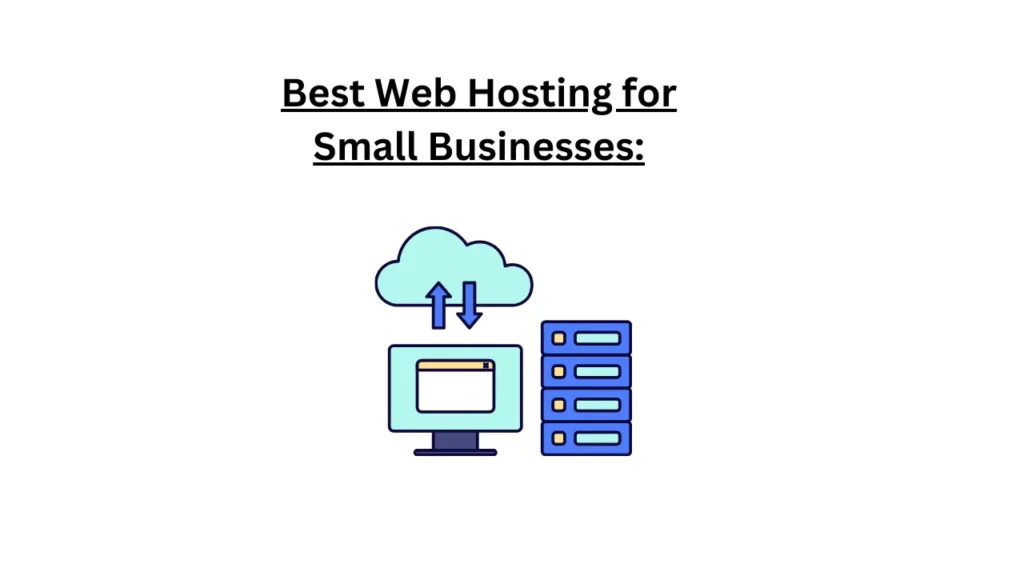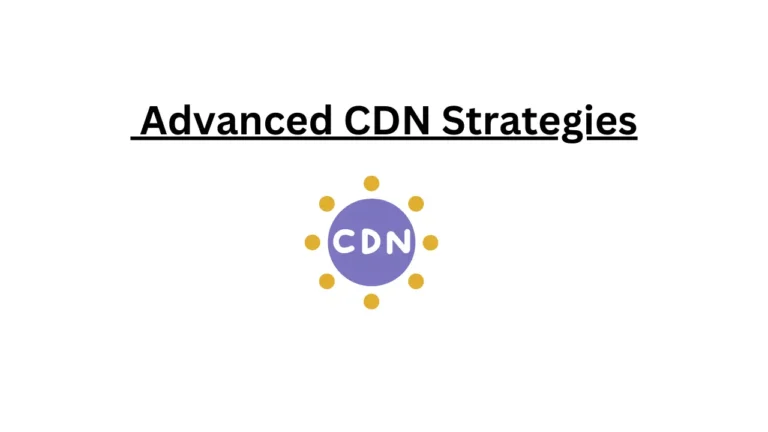Introduction
Choosing the best web hosting for small businesses can feel like navigating a labyrinth; it’s easy to get lost in a myriad of options. But fear not, intrepid business owner! Think of web hosting as the backbone of your online presence. Just as a cozy coffee shop needs a reliable espresso machine, your website needs a robust hosting service to ensure it runs smoothly. From online boutiques to neighborhood cafes, every small business requires a dependable web host to keep the digital doors open.

In this comprehensive guide, we will delve into the key elements that make a web hosting service ideal for small businesses. We’ll examine essential features, cost-effectiveness, and the importance of customer support. Whether you’re just setting up your first website or looking to upgrade your existing plan, our aim is to steer you toward the best web hosting solution tailored to your needs.
We’ll also share valuable tips and compare popular hosting providers, ultimately helping you make an informed decision. By the end of this guide, you’ll have a clearer understanding of what to look for in a hosting service, ensuring that your small business site remains fast, secure, and efficient.
So grab a cup of your favorite brew, get comfortable, and embark on this journey to find the best web hosting for your small business. Let’s get started!
Factors to Consider When Choosing Web Hosting for Small Businesses
Choosing the right web hosting service is crucial for the success of small businesses. A thorough understanding of the essential factors can prevent common pitfalls and ensure a smooth operational experience. Below are the primary considerations:
Performance and Speed
Website performance is a critical factor, as it directly impacts user experience and search engine rankings. Ensure the hosting provider offers fast server response times and high bandwidth capacity. Imagine your website running as slowly as the line at a DMV—nothing drives customers away faster!
Uptime Reliability
Uptime reliability ensures your website is available when customers need it. Look for hosting services that guarantee at least 99.9% uptime, as even a single percentage point drop can translate to significant downtime. Consider potential loss; picture your site going down during a big sale event, that could be disastrous!
Customer Support
Having responsive and knowledgeable customer support can save precious time and reduce stress. Look for 24/7 availability and multiple support channels such as chat, phone, and email. Imagine trying to resolve an issue in the middle of the night with a clock ticking down to a project deadline—24/7 support can be a lifesaver.
Scalability
Your business will hopefully grow, and your web hosting needs should grow with it. Make sure the hosting provider offers scalable options. This includes seamless upgrading of resources such as bandwidth, storage, and processing power. Imagine needing to haul all your stuff to a larger office; wouldn’t it be nice if everything just expanded to accommodate your growth instead?
Cost
Cost is often the deciding factor for small businesses. Evaluate what you get for your money, including features, performance, and support. Some hosts might lure you in with low initial fees but have hidden costs or costly renewals. It’s like having an attractive bait wrapped around a hook; don’t get snagged by the fine print!
For a clearer, more engaging comparison, tables or charts can be quite useful. They can summarize factors like performance metrics, uptime guarantees, support channels, and pricing to help make an informed decision. This holistic approach ensures that you spend your resources wisely and pick the best web hosting suited for your small business needs.
Top Web Hosting Providers for Small Businesses
Choosing the right web hosting provider is crucial for small businesses aiming to establish a strong online presence. There are numerous options available, but not all are created equal. Here’s a detailed comparison of the top web hosting providers, weighing the pros and cons of each, and highlighting key features and pricing. We’ve also added a sprinkle of humor to keep things engaging and relatable. Let’s dive in!
1. Bluehost
Pros: Bluehost is renowned for its user-friendly interface and stellar customer service. It offers one-click WordPress installation and a free domain for the first year, making it a favorite among small businesses.
Cons: While Bluehost is great for beginners, advanced users might find it limiting due to fewer high-end hosting features.
Key Features: 1-click WordPress installs, free CDN, SSL certificate, and 24/7 customer support.
Pricing: Starting at $2.95/month, it’s budget-friendly, especially for startups.
2. SiteGround
Pros: SiteGround offers fast load times and excellent technical support. It’s ideal for small businesses that expect moderate traffic and need reliable performance.
Cons: Slightly more expensive than some competitors, making it less appealing to extremely budget-conscious businesses.
Key Features: Daily backups, free SSL, managed WordPress hosting, and high uptime.
Pricing: Starts at $3.99/month.
3. HostGator
Pros: HostGator provides a lot of ‘bang for your buck’ with its extensive features and competitive pricing. Great for e-commerce startups looking for cost-effective solutions.
Cons: Customer service has mixed reviews, with some users experiencing longer response times.
Key Features: Unlimited storage, unmetered bandwidth, free website builder, and $100 Google Ads credit.
Pricing: Starting at $2.75/month.
4. A2 Hosting
Pros: Known for its excellent speed and performance. A2 Hosting is ideal for small business owners with a techy side looking for top-notch performance and developer-friendly features.
Cons: Higher pricing for renewals can be a drawback for long-term users.
Key Features: Free site migration, anytime money-back guarantee, Turbo servers, and developer-friendly tools.
Pricing: Plans start at $2.99/month.
5. InMotion Hosting
Pros: Offers a good balance of performance, pricing, and excellent customer support. Ideal for small businesses with moderate traffic needs and those wanting a reliable hosting partner.
Cons: Initial setup can be a bit complex for first-time users.
Key Features: Free domain and SSL, unlimited disk space, and backup options.
Pricing: Starting at $2.49/month.
For a quick comparison, here’s a table to help you make an informed decision:
| Provider | Starting Price | Key Features | Pros | Cons |
|---|---|---|---|---|
| Bluehost | $2.95/month | 1-click WordPress installs, 24/7 support | User-friendly, free domain | Fewer high-end features |
| SiteGround | $3.99/month | Daily backups, managed hosting | Fast load times, solid support | Higher cost |
| HostGator | $2.75/month | Unlimited storage, free site builder | Cost-effective, feature-rich | Mixed customer support reviews |
| A2 Hosting | $2.99/month | Turbo servers, developer tools | Fast and reliable | Higher renewal prices |
| InMotion Hosting | $2.49/month | Free domain, unlimited disk space | Balanced performance | Complex initial setup |
Key Takeaways and Conclusion
Choosing the right web hosting provider is paramount for the success of any small business. A reliable web host ensures your website remains accessible, secure, and fast-loading, which are critical factors in retaining visitors and converting them into customers. Throughout this guide, we’ve examined various web hosting options, considering factors such as cost, performance, customer support, and scalability. Each small business has unique needs, so it’s important to align your choice with your specific goals and requirements.
Several hosting providers stand out for their diverse offerings. Shared hosting emerges as an economical choice for blogs and low-traffic websites. Meanwhile, businesses with higher traffic demands may benefit from VPS or dedicated hosting due to their enhanced performance and security. Cloud hosting presents a flexible, scalable solution for those anticipating growth. Managed WordPress hosting simplifies website management for businesses focused on the WordPress platform, providing specialized support and optimized performance.
Actionable advice for small business owners includes starting with a clear understanding of your website’s requirements. Assess your budget, anticipate future growth, and evaluate the technical support options of potential hosts. Consider starting with a trial period offered by many hosting providers to test their services firsthand. Additionally, keep an eye on uptime guarantees and customer reviews to gain insight into the reliability and reputation of the host.
FAQ
1. What type of web hosting is best for a small business?
This depends on your needs. Shared hosting is cost-effective for low-traffic sites, while VPS and dedicated hosting offer better performance for higher-traffic sites. Cloud hosting is a flexible option for scalability, and managed WordPress hosting is tailored for WordPress sites.
2. How much should I expect to pay for web hosting?
Costs can vary widely. Basic shared hosting can be as low as $3-$10 per month, while VPS hosting ranges from $20-$100 per month. Dedicated hosting and specialized services like managed WordPress can cost $100 or more per month.
3. Do I need technical knowledge to manage web hosting?
Not necessarily. Many web hosting providers offer managed services and user-friendly interfaces that require minimal technical knowledge. However, a basic understanding can be beneficial, especially if you opt for unmanaged hosting solutions.
4. What is uptime, and why is it important?
Uptime refers to the time your website is accessible online. High uptime guarantees, typically 99.9% or higher, are crucial as they ensure your site is available to visitors and potential customers, minimizing downtime and potential revenue loss.
5. How can I ensure my website is secure with a web hosting provider?
Look for hosting providers that offer robust security measures such as SSL certificates, regular backups, firewalls, and malware scanning. Good providers will also have strict data protection protocols and responsive support to address any security issues promptly.

